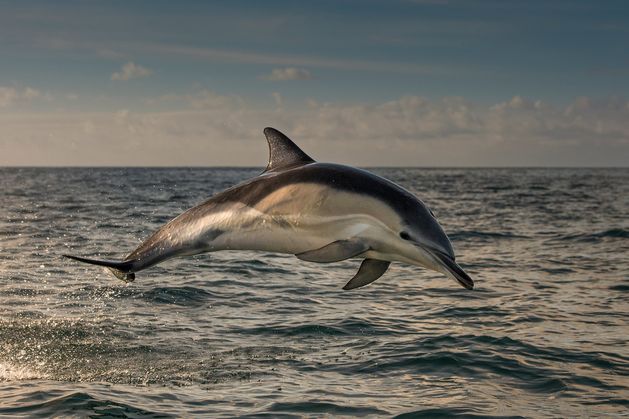A new study has examined the enigma of emaciated common dolphins washing up on our beaches or being captured in “bycatch” — the practice of releasing unwanted catch — in recent years.
Marine scientists examined hundreds of post-mortems on dolphins carried out over the past three decades to discover trends in the causes of death.
The figures showed 13pc of common dolphins stranded or bycaught off the Irish coast between 2017 and 2019 died from starvation.
This compares to 3pc of common dolphins found off the UK coast who starved to death between 1990 and 2006.
In the 1990s and 2000s, the vast majority of the dolphins examined in the UK died from trauma which included being struck by a boat or ship, caught in a fishing net, attacked by a bottlenose dolphin, or a difficult calving.
In the newer Irish cases, infectious disease was the biggest cause of death while starvation was much higher and trauma deaths were much lower than in the older English cases.
The study said there were significantly fewer animals with relatively good nutritional status in the recent Irish autopsies than in the post-mortems carried out in the older time periods in Ireland and the UK.
“A decline in the nutritional health of the common dolphin in the Celtic Seas eco region was observed between time periods assessed within the current study, with an increased number of stranded individuals presenting in an emaciated condition and dying as a result of starvation in the most recent time period,” the study stated.
It also found a “significant decline in overall nutritional status” and ventral blubber thickness — a measurement of blubber in front of the dorsal fin and body girth — between the new Irish cases and the historical files from the UK and Ireland.
Their condition varied across seasons with dolphins at their healthiest in spring and in the poorest condition in autumn. “These fluctuations are likely attributed to seasonal changes in prey availability, reproductive investment, and thermoregulatory needs,” according to the study titled “Emaciated enigma: Decline in body conditions of common dolphins in the Celtic Seas ecoregion”.
Published in the Ecology and Evolution journal, it said the nutritional health of free-ranging animals is of growing interest in conservation research as it is directly related to survival and reproductive success.
They concluded: “Further research on dietary consumption and preferences of the contemporary sample set may uncover the root causes of the observed decline in the nutritional health of these [dolphins].”

